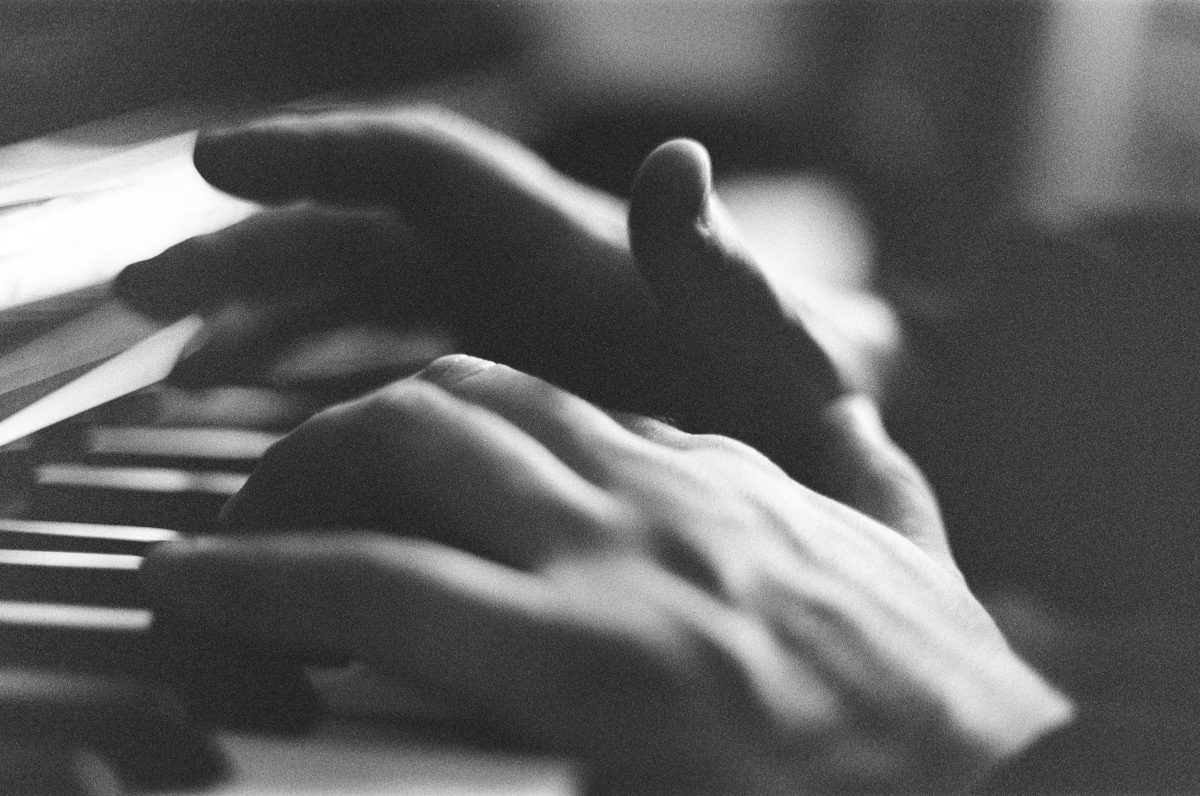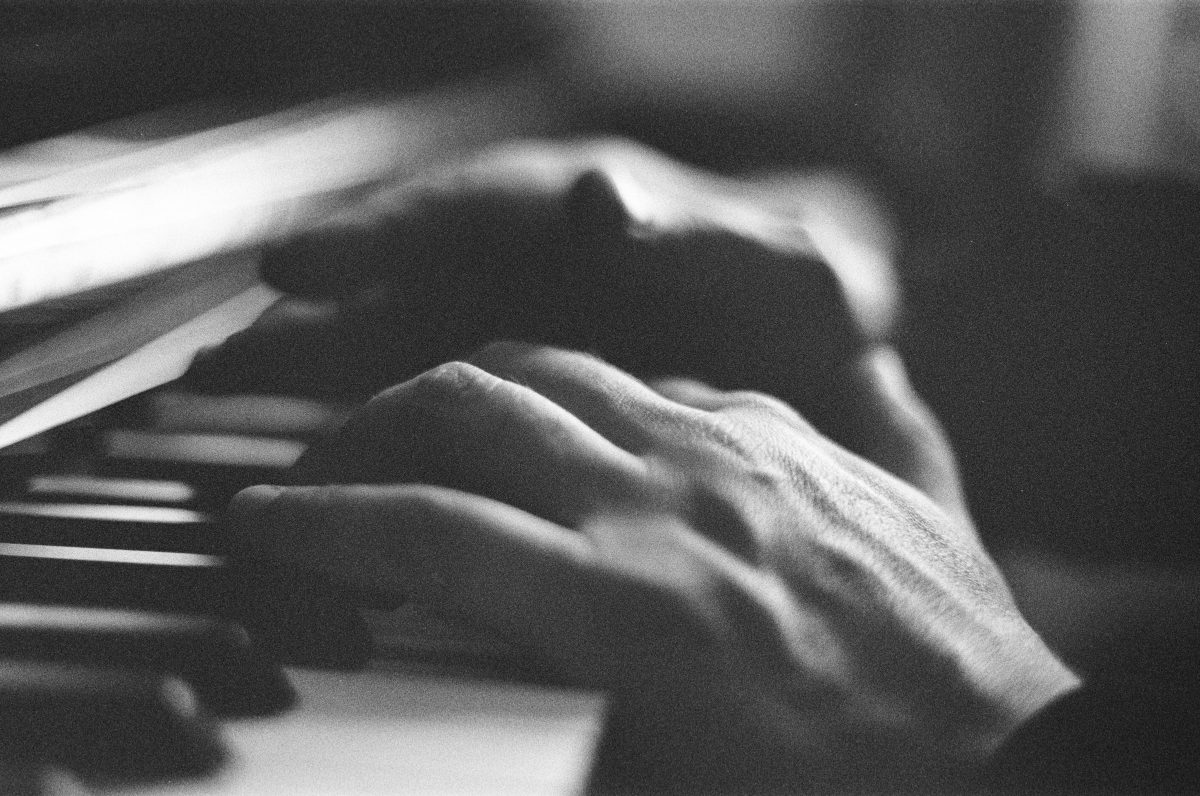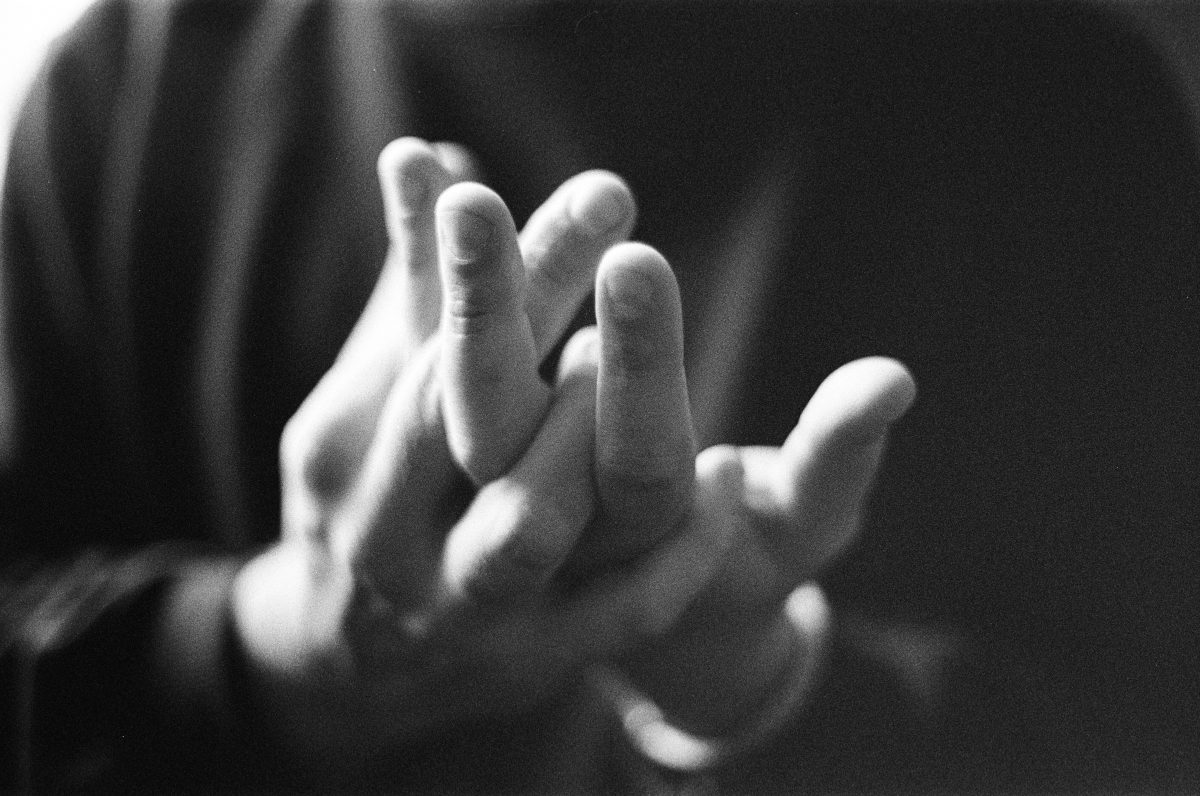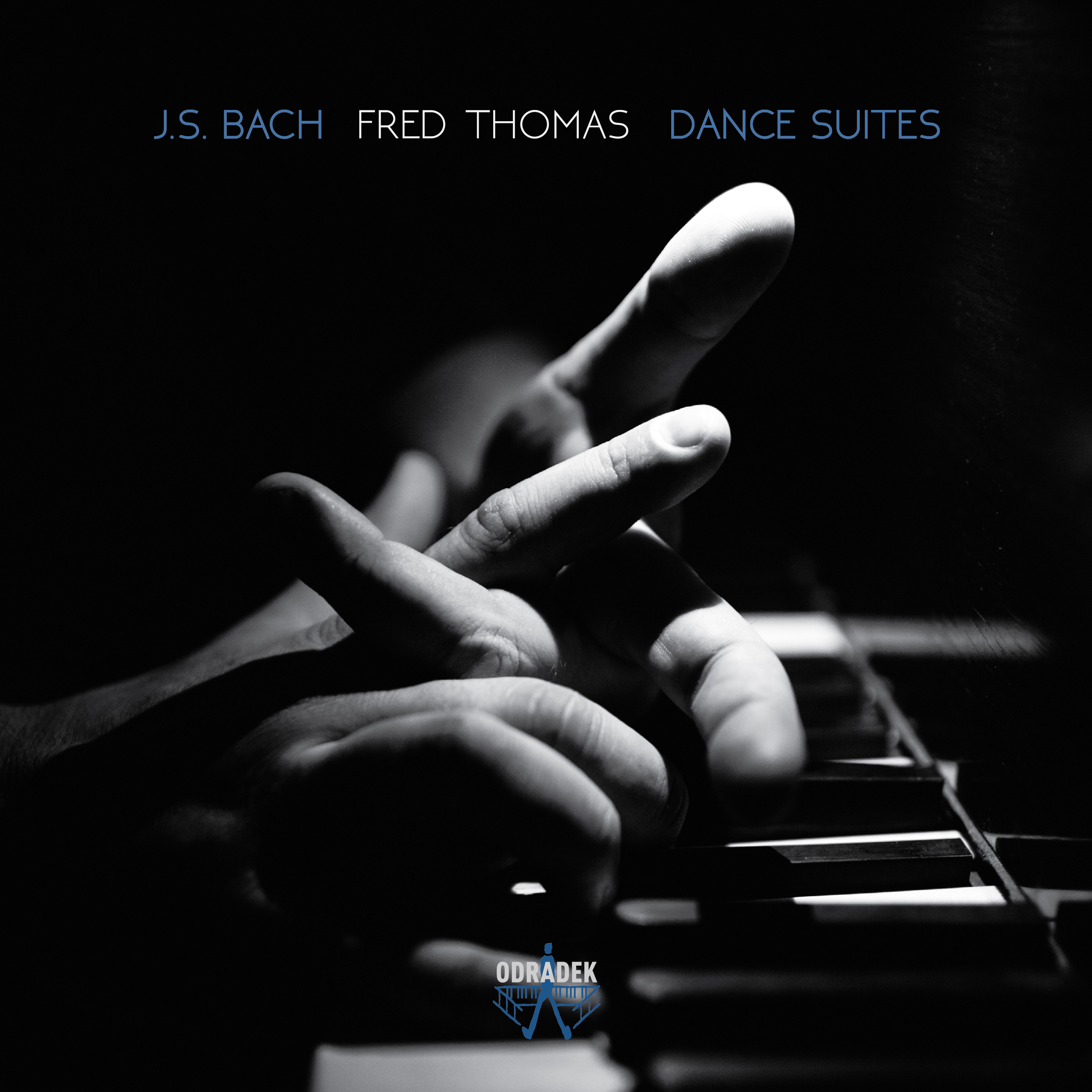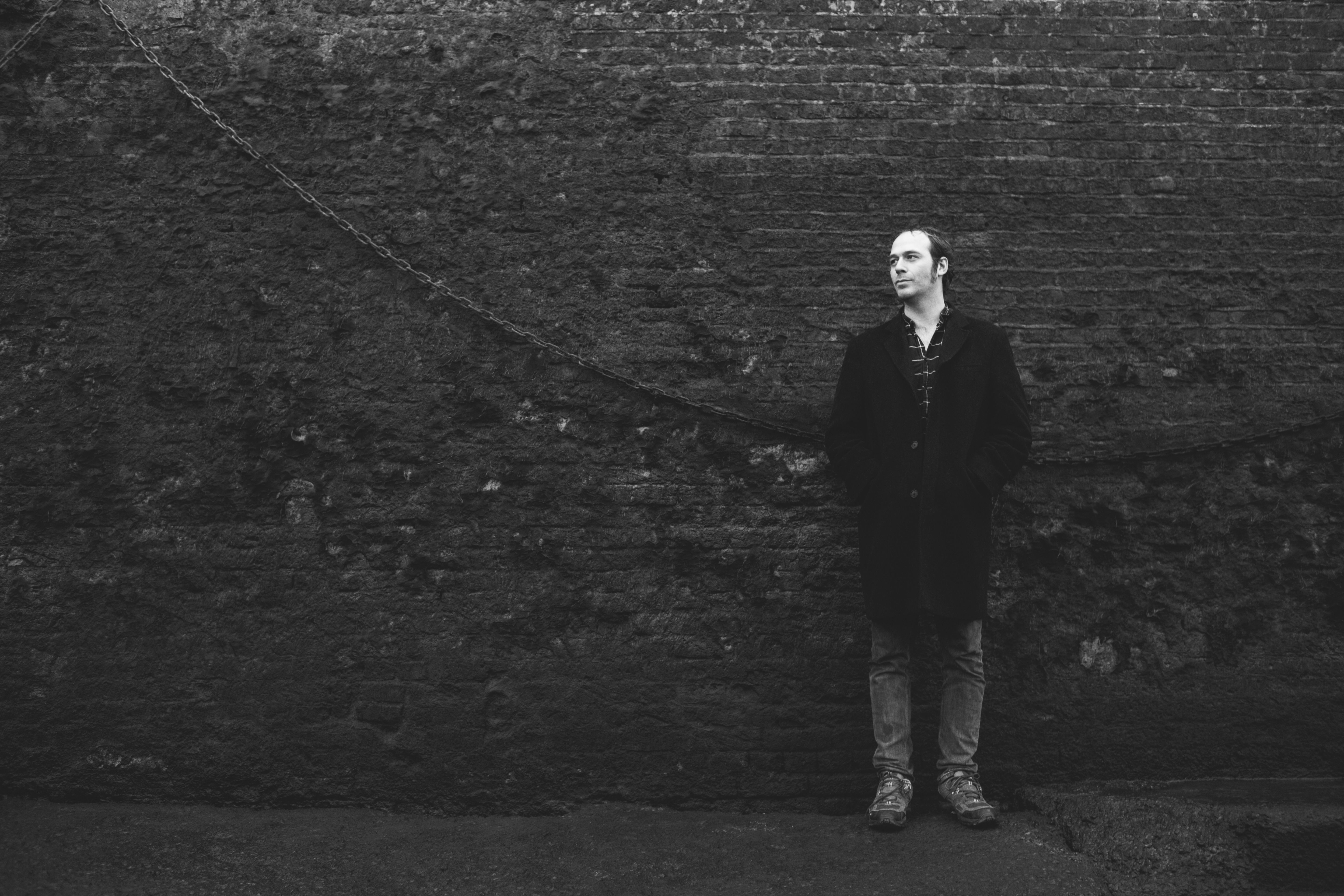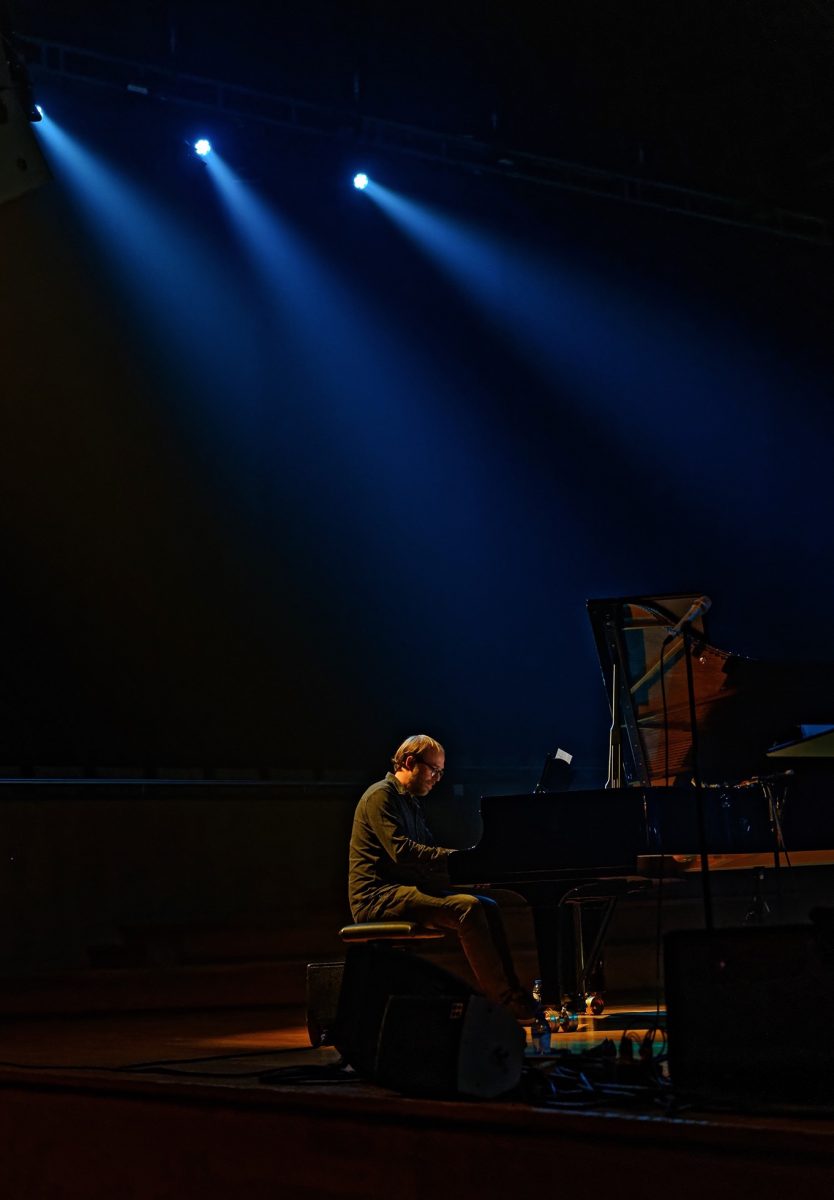
Dance Suites – by Fred Thomas
“This is a fascinating and musicologically daring concept. The basic form of the Baroque dance suite is maintained, but the actual movements are pic’n’mixed from the Partitas and French Suites: we open with a Sinfonia (Partita No 2) before proceeding to an Allemande (French Suite No 5), thence to a Corrente (Partita No 6), and so on. Two such ‘complete’ suites are presented.
If it were not for the persuasive pianism and musicality of Thomas, this would be easy to dismiss. It says much that he is almost as persuasive as Perahia in the latter’s DG recording in the Allemande of the French Suite No 5. Thomas lists Rosalyn Tureck as principal influence and there is a line of purity from first to last, delivered with a markedly multivalent touch. Remarkable.”
***** 5 stars – International Piano Magazine
“a boundary-blurring composer and improviser”
“Assembled with the ingenuity of a seasoned DJ”
“beautifully ruminative…the serious care and thought characterising Thomas’ acoustic choices happily extend into his pianism” – Gramophone Magazine
Read Gramophone Magazine’s full review here
“Dance Suites” is released out now on Odradek Records.
‘Meet the Artist‘ Fred Thomas Interview here
ARTIST STATEMENT
It took me a long time to pluck up the courage to record some of Bach’s solo keyboard music. Its emotional, intellectual, technical and spiritual demands seemed overwhelming. Twice I started only to quit the idea, daunted and feeling unready. Then, in a moment of lucidity, I wondered: when you’re dealing with the most miraculous body of human creation in all the arts, when are you ever ready? Life is short. Bach himself was not prone to procrastination. He produced a quantity and quality of music some consider literally unbelievable.
I recorded alone with a huge piano, trying to coax the monster-machine into behaving well. Why the piano and not something ‘authentic’? For one thing, it’s my first instrument, but ultimately it’s a tired question, certainly in comparison with the sheer wonder of the music itself. In the end, the most scholarly ruminations on the abstractness of Bach, or on the piano’s range of articulation, or on the futility of pursuing authenticity in the absence of an authentic audience, just can’t match the sonic revelation that, played with some imagination, Bach sounds good on a tenor banjo – more on that soon.
His music is the most transcendent, all-encompassing, wise and child-like thing I know. In the words of Bernard Chazelle, “Bach’s music is soft and gentle, often suffused with piercing tenderness. If his work has an unmistakable child-like quality, it’s because its spiritual aspirations, borne of faith, joy, grace, and wonder, call for the deepest seriousness – and no one is more serious than the child”. I have the immovable feeling – knowledge, almost – that Bach fathoms and encircles everything.
John Cage considered music from the past useful only to the extent to which it leads to the creation of new things, a view far removed from the occasional dogmatism of the historical performance movement. Though I value both viewpoints, my aim lies somewhere in between: to derive something personal from a combination of historical enquiry and poetic imagination, using fantasy to supplement the fragmentary knowledge that contextual study reveals. Furthermore, the violation of chronology – my choice and ordering of tracks – is an attempt to give this record narrative force.
Creative recording techniques also played an aesthetic role. Using many microphones and basing their blended combinations on inherent musical character enables each movement to inhabit a unique soundworld. This process became genuinely interpretative, post-production. Although relatively under-explored in classical music recording (where the goal is often to reproduce the ‘natural’ sound of a live concert), my aim is to treat recording technique as an independent, exploratory art form.
Recorded at the Royal Academy of Music, London, March and June 2015
Engineered and Mixed by Alex Bonney
Mastered by Thomas Vingtrinier, Paris
Produced by Fred Thomas
Piano technician: Clive Ackroyd
Piano: Steinway D
